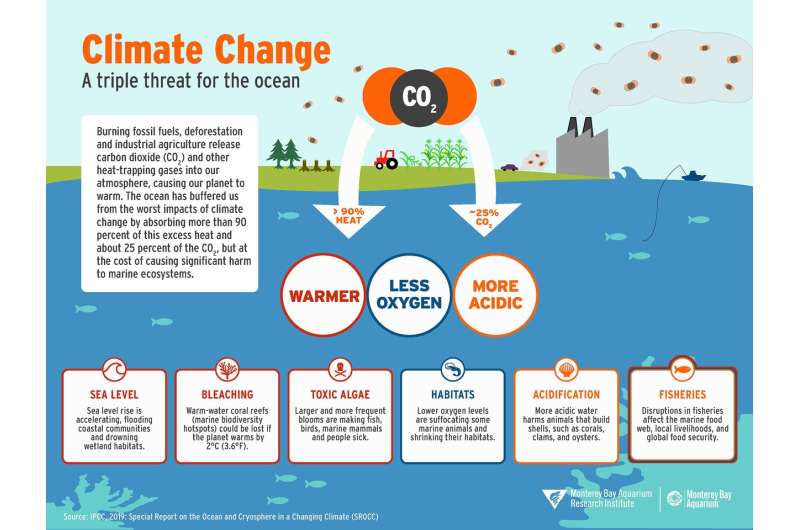Credit: Monterey Bay Aquarium Research Institute
Climate change has serious, long-term, and far-reaching negative consequences for our ocean.
Burning fossil fuels, raising livestock, and clearing forests are just three examples of human activities that release billions of tons of CO2 and other heat-trapping gases into our atmosphere every year, making our planet warmer. The ocean has buffered us from the worst impacts of climate change—absorbing about 25 percent of the excess CO2 and more than 90 percent of the excess heat. But these climate services come at a significant cost for marine ecosystems and result in harmful impacts including:
- Increasing ocean temperature: bleaches coral reefs, shifts where fish can live, and decreases ocean wildlife,
- Ocean acidification: causes a depletion of carbonate ions, which are critical for shell-forming animals like oysters, crabs, and shrimp,
- Decreasing oxygen: creates areas that suffocate marine animals, shrinks their habitats, and forces them to swim into places where they are more vulnerable to predators,
- More intense tropical storms and higher sea level: puts coastal communities in harm's way and destroys coastal wetland habitats which include mangroves and salt marshes.
These and other negative impacts will be documented and summarized in the forthcoming Intergovernmental Panel on Climate Change (IPCC) Special Report on the Ocean and Cryosphere in a Changing Climate—being released on September 25th 2019 in Monaco. It is the first IPCC report to focus specifically on the marine realm.
- In order to protect the ocean and slow the impacts of climate change, the science indicates we need to take action on two fronts:
- Cut net carbon dioxide emissions to zero by 2050;
- Increase ocean health—by reducing pollution, overfishing and safeguarding critical marine and coastal habitats.
Provided by Monterey Bay Aquarium Research Institute























